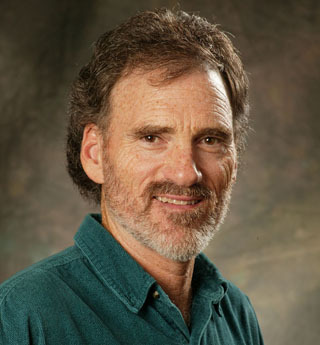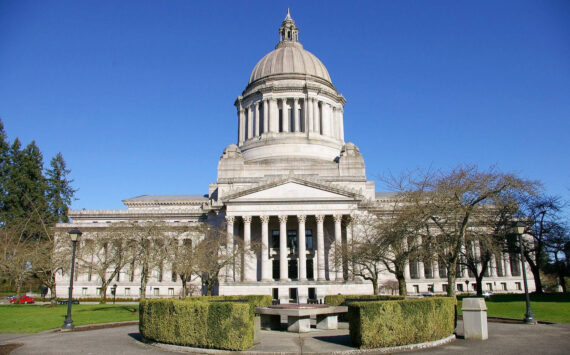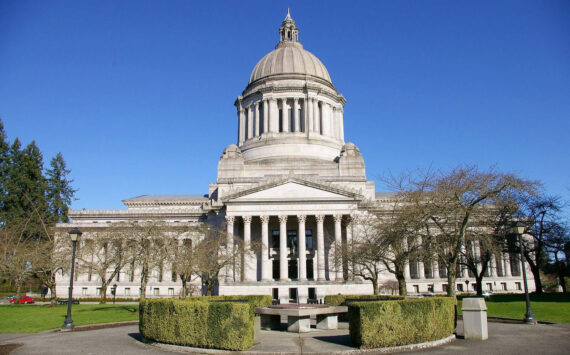With the victory of President-elect Barack Obama, the United States is finally coming to terms with its own tumultuous history, according to University of Washington Tacoma Professor Michael Honey.
A nationally renowned expert on labor history, civil rights and Martin Luther King Jr., Honey believes the country is finally facing the reality that people of color are a vibrant, important and equitable part of society. It’s a giant leap forward for America, he said.
“It took an African-American to really follow through on what freedom means,” Honey said. “We have elected a leader whose insight comes from his own historical roots. He is trying to make freedom real for everybody.”
Honey holds the Fred and Dorothy Haley Chair in Humanities at UW Tacoma. He is the author of the acclaimed 2007 book Going Down Jericho Road: The Memphis Strike, Martin Luther King’s Last Campaign (W.W. Norton), which examines Dr. King’s role in the 1968 Memphis sanitation workers strike and highlights the final days before the civil rights leader’s assassination.
Honey recently answered questions about Obama’s role in history.
1. Why was this election so significant?
In 30 years, people of color will be in the majority in the United States. The U.S. is about inclusive equality and freedom. But a certain portion of the electorate is holding on to the old America. The old idea of white men running things doesn’t fit the reality of the country any more. It’s like we’ve been trying to build America while excluding a big part of America. We have had so much trouble [with racial issues]. But now that Obama has been elected, I feel like we’re finally dealing with our own history. We’re not living in unreality anymore.
2. How did the work of Martin Luther King impact this election?
Forty years ago, Dr. King recognized the unreality of our society, and he verbalized it well. His message was one of inclusiona warm, open and welcoming view of what America can be. I hear some of those same messages from Obama. But if you look beyond the “I Have a Dream” speech, you’ll see that Dr. King’s work went beyond race relations. Toward the end of his life, he spelled out the basic problem with American society: that war, poverty and racism are interconnected. They are all tied up together in our history. It’s the biggest challenge we have, and it’s not going to be easy to overcome. We seem to be unable to let go of war as an answer to our problems. I believe we are making some progress in terms of race, and this week’s election certainly supports that conclusion. But now we must take it a step further and look at the socio-economic problems.
3. Is President-elect Obama the heir to King’s legacy?
In some really fundamental ways, yes. But I believe we all are. Barack Obama has internalized King’s message, he understands it and he can express it well. He learned a lot from the civil rights movement. But at the same time, he’s very pragmatic about how to approach it. King is the most well known exponent of what the civil rights movement was about — love as a basic way to move society forward. Obama doesn’t use that word, but that’s really what he’s talking about. Obama is distinctive. I think he’s a really unique political leader.
4. Have we achieved Dr. King’s dream?
That depends on which dream you’re talking about. By the end of his life, the American dream, for him, had become a nightmare. He had realized that war, poverty and racism were so intractable, and there were people in government who could not recognize the problem. Overall, his dream was about having a just world, and about the U.S. playing a leading role in it. We’re far from that at the moment. Electing Obama is a start. But getting elected is just the first step.
5. Why do you think voter turnout was so high?
There are two reasons for that. First, people have been feeling desperate about their country, truly desperate and ashamed. I think people were kind of afraid that if we continued on this path, it would be the end of the United States being a country to emulate. The second reason is that Barack Obama is a true leader. Rarely do you find a leader like that. His background as a community organizer gave him insight into how community campaigns work, and he coalesced a lot of forces. There was so much person-power in this campaign. It was a grassroots campaign that really felt like a return to democracy. This wasn’t just a political campaign. It was more like a movement.
6. How can the new president keep citizens energized?
He will be under incredible pressure from all sides. He needs a movement that is demanding changes. That is upon us, the people who have been involved, to keep it alive. That’s the first thing to have in our minds — what we need to do now.
7. How will the country change with Barack Obama as president?
I believe this will give us an opening for a new way to understand the country. I see him calling people to service, encouraging the youth to become active. I see us rejecting the politics of hate. Martin Luther King said that if you neglect social problems, they will pile up until they are all interrelated. That is the situation we’re in 40 years after his death. We aren’t going to be able to solve everything right away, but we’ll solve parts of it. We may not succeed. But at least now, we can try.
– – – – – – – – – – – – – – – – – – – – – –
For more information about Dr. Michael Honey, visit http://faculty.washington.edu/mhoney/





